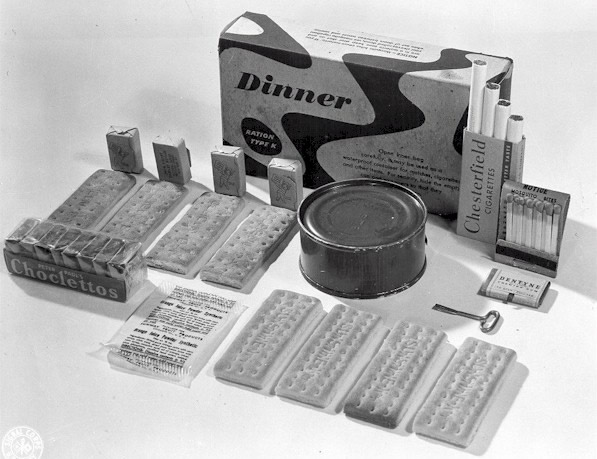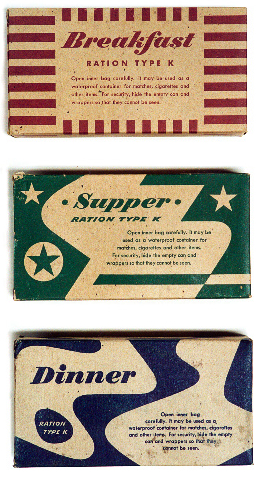I noted that with the over $300 billion they had gotten just since 2000, they had never once before cared about Ebola. They even denied funding to a company that had an Ebola vaccine but needed money for a clinical trial. Instead of funding an Ebola vaccine, the NIH wasted that $10,000,000 on a video game called, "Escape From Diab", where hamburgers are the enemy. NIH lists that as a "success story" on their website even though no one has played it.
Who funded the Ebola vaccine trial instead of the organization with "Health" in its name? The Defense Threat Reduction Agency. The military. They may save your teeth too.

Link
For the better part of the last two decades, the army has been developing candy which boosts the defensins in our saliva that naturally help kill bacteria. It takes quite a while for our saliva to naturally remove bacteria, if it ever reaches all parts of the teeth effectively. That is why brushing teeth and then proper dental care came into existence. But there is one thing that was done 9,000 years ago that the army thinks can help - chewing gum.
Similar to reasons for funding an Ebola trial, the military has to think about health in a lot more places than most Americans will ever experience. The military currently spends at least $100 million on non-routine dental care, like periodontal disease. They know better than anyone how chronic the issue is. Before modern dental care, and discovering that things like that sugar-free chewing gum reduced cavity risk, they had to create a minimum standard for how many opposing teeth a soldier could have (it was 6.) The co-morbidities of oral health were so high that you weren't even medically qualified to shoot Nazis if your teeth were too bad.
It made sense to develop gum that improves health because soldiers have always liked gum, which makes it an ideal route to better teeth. The military included gum in packages 100 years ago and in its earliest "C-Rations" (A-rations being the term for fresh food, B-rations being packaged, but still prepared hot in a field kitchen), the portable food soldiers would carry for up to three days.(1)

K-ration pack. The cigarettes were included until 1975 but the gum is still around. Image via USArmyModels.com
In 2006, the US military patented a method for an anti-plaque chewing gum which contains the antimicrobial peptide KSL If you want to eliminate cavities and periodontal diseases the best target is plaque, which is essentially bacteria trapped on the surface of the tooth. But KSL alone didn't do much at all to remove established plaque. This KSL-W military gum worked not just in preventing plaque but also removing plaque already there. It takes about 20 minutes to be effective but while no one brushes their teeth or using mouthwash for 20 minutes, lots chew gum much longer than that. When I was in the military I was never without gum. I have never smoked so on a break I'd have a stick of gum.
Some 15 years later, and now called PlakTak, it went through Phase 2a Human Clinical Trials with gingivitis patients successfully and as of late 2019 was seeking a commercial partner to produce it. Or develop it further. It's actually to hard to know which. It is not classified, but it's not easy getting information either. I corresponded with the lead inventor and he put me in touch with Dr. Dave Humphrey at USAMRDC MTT (the military loves acronyms - all of that is short for US Army Medical Research and Development Command Medical Technology Transfer) who said he might be able to put me in touch with the licensee, which means they have a commercial partner even if the Federal Labs website still shows it still available. The short answer I received: "While the anti-microbial gum is not yet available to the public, work is progressing."
It may be that if the gum does want to make a health claim - unlike "military" gum you can buy on Amazon, which is just caffeine in gum - the current FDA system may still be too convoluted to be affordable. FDA got more nimble under Dr. Scott Gottlieb, MD - a lot less of the legacy 18 months and millions of dollars to change the font on a label that existed during the previous administration - but it is still stuck using a 1980s methodology in a CRISPR-Cas9 century, so the costs to get approval to then be stuck with a "only available by prescription" stigma might prohibit sales.
A company could also be planning to go more of the supplement route and not make an overt health claim, but suggest it improves oral health with that 'has not been evaluated by FDA' disclaimer in fine print.
All of that remains unclear. We just know the military has invented gum that improves your health, so now it is just a question of time as to when people can try it out.
NOTE:
(1) A lot of these terms can be confusing because they end us used interchangeably. In the earlier days of war rations were just rations. They became iron rations when canning became common. Then Reserve Rations. In World War II, the commonly termed K-Rations were also called K-rations (morning), D-rations (energy snack, like chocolate) and C-rations (supper or dinner). The goal being one hot prepared meal per day to augment the two packaged ones. If you own military BDUs, you see a large pouch on each leg. Those pants pouches are the size of modern portable meals, MREs, in use today.
When I lived in Florida, meals were breakfast, lunch, and dinner, while in rural Pennsylvania meals were breakfast, supper, and dinner. Then, as now, soldiers come from more rural communities so they used terms that soldiers used. Not all of the US will be fluent in French or any other language but we have a lot of 'languages' that mystify people from other countries precisely because our ancestors mostly came from somewhere else. It was not unnatural if a mother was in a babushka and told a kid to come in for supper or she'd whack him with a shillelagh.






Comments